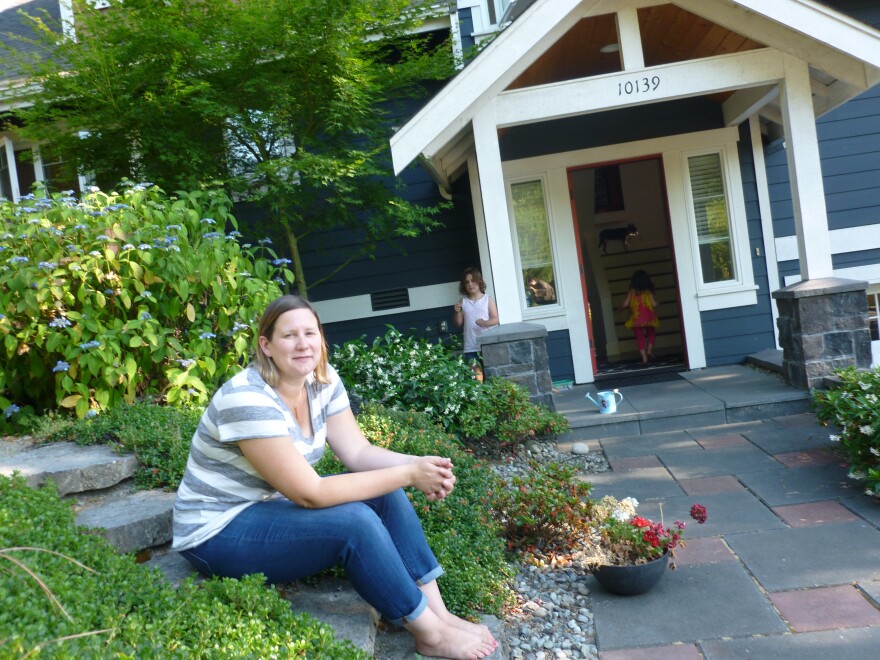It’s tough to buy a house in Seattle at the moment.
The shortage of houses on the market has widened the gap between those who can plunk down far more than the asking price – often in cash – and those without such means.
But even the rich are having difficulty buying property these days.
Allison Dunmire, a stay-at-home mom in Kirkland, is among those who would normally snatch up a home without a bidding war.
Her husband works at Microsoft, so the family is financially comfortable. Currently they rent a house, which the landlord wants to sell, although the landlord is willing to wait for them to buy a house of their own.
Even in this no-pressure situation, Dunmire and her husband are in a housing pickle.
“When I stop to think about it too much, it makes me so mad,” she said. “What we’re looking at here is just stuff I don’t even want to live in. So it can be a little bit depressing at times. ”
Like last week.
Dunmire and her husband finally saw a house they thought might work if they renovated.
But they didn't get the house. She believes the person who landed the house bid close to $60,000 over asking.
“There is just no inventory, and if there is inventory, it goes – snap – like in a heartbeat,” she said.
Low borrowing costs are driving some of this fever, although those won’t go on forever.
But another player is the increase in the number of people with money moving to the Seattle area.
Search “engineer” on a job site and there are 9,000 Seattle listings.
And because demand from employers is up, salaries are going up too.
But the number of houses for sales is down, which explains the bidding wars.
Patti Hill, the president of the King County Realtors, recently had a client win a bidding war.
“We had to pay more than $100,000 over asking to get the house, which is a little crazy,” Hill said.
Cash is king when others need financing. And people are paying $500 for a pre-inspection, before they even make a bid. The idea is that if they get the house, it’s then tough to ask the seller to fix up problems.
This is a game that can best be won by the few at the top of the economic scale.
Martha Burkard of Seattle said she was looking to buy houses in Rainier Valley. She bid on three houses but didn’t get any of them.
"It felt like we couldn't get anything because we'd be out-bid,” Burkard said. On the fourth try, she got a house.
Her family gave her money to help with the down payment – a bidding war had ballooned it – but she still needed some luck. It was an estate and the seller had tired of the bidding war.
“They said, ‘No more, last bid,’” Burkard said.
She still paid $45,000 over asking for her Beacon Hill home with pink carpeting.
Hers is a common story across Seattle. The data analysis company RealtyTrac says that Seattle is among the least affordable cities for people with a low down payment.
That has been a problem in the past, but there are signs the supply crisis is making it worse.
Habitat for Humanity, a nonprofit that secures housing for low-income people by building homes or refurbishing them, has seen that impact.
Kevin Hunter, the head of Habitat in King County, said there’s a wedge between those who can afford to buy houses and those who no longer can.
"We're becoming the next San Francisco,” Hunter said. “People who work in King County or in the City of Seattle can't even afford to live in proximity to their livelihood. And so they are being forced to move either out of county or to remote places within the county. The pressure is going up."
So the supply crisis is pushing homeownership beyond some people’s reach. And people with lower incomes are on the sidelines – until something changes, or until a supply of value-priced homes could be found.
Turns out the potential is out there.
Part II: Thousands Of Foreclosures Sit Unoccupied In Seattle Area


